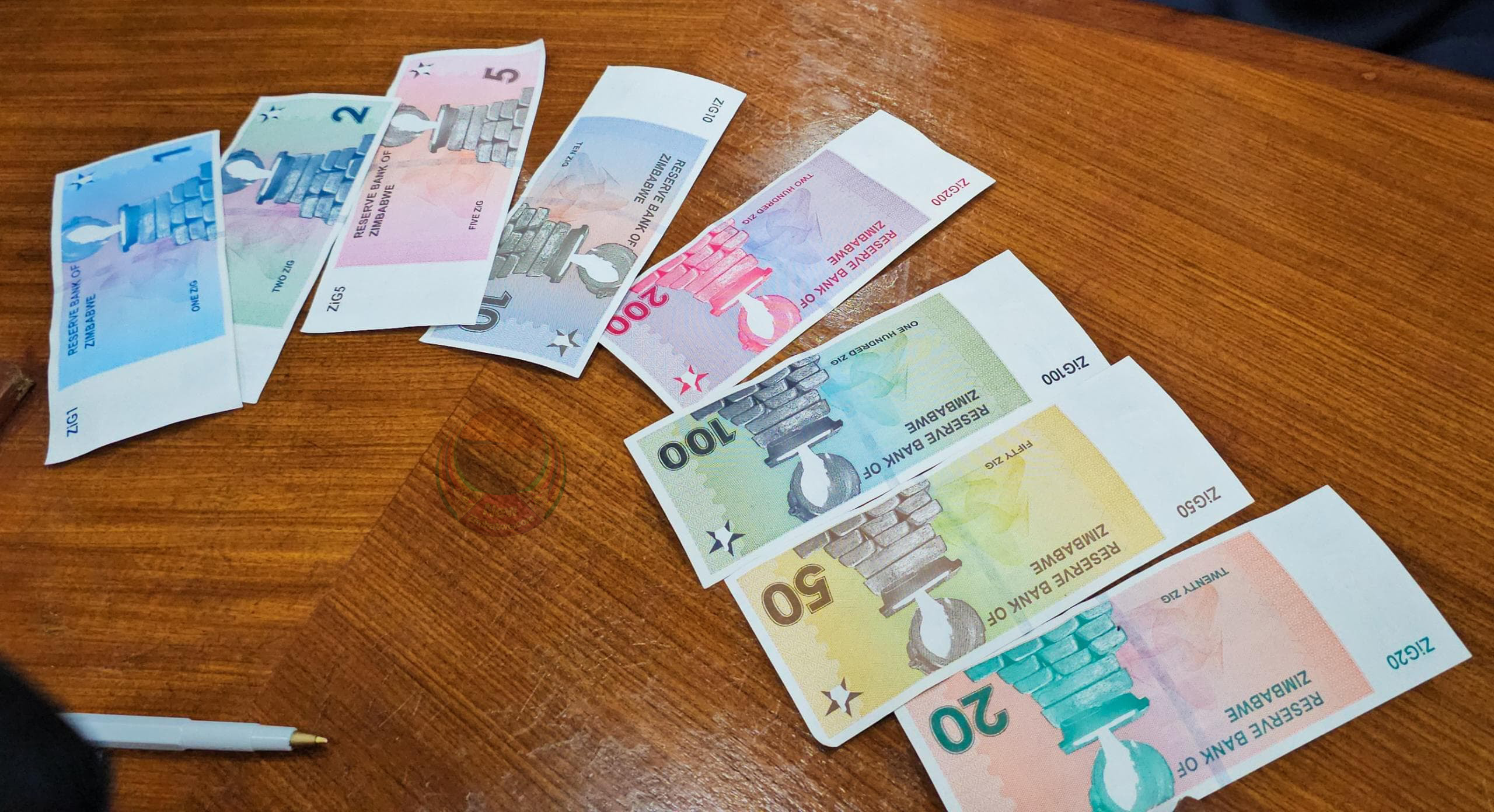Harare, Zimbabwe | The Reserve Bank of Zimbabwe (RBZ), under the leadership of new governor John Mushayavanhu, has discarded millions of Zimbabwe Gold (ZiG) banknotes that bore the signature of his predecessor, John Mangudya.
This decision was taken despite the high cost of printing these notes, as Mushayavanhu preferred not to circulate currency signed by Mangudya.
When Mushayavanhu introduced the ZiG currency on April 5, trading at an initial rate of US$1 to 13.56 ZiG, there were already large quantities of banknotes printed under Mangudya’s term.
These notes were part of preparations to phase out the bond notes introduced in 2016, which were later converted into local currency in 2019. This transition occurred after Zimbabwe abandoned the Zimbabwe dollar in 2009 due to severe economic challenges and hyperinflation, and introduced a new currency following the 2008 elections under a Government of National Unity.
The banknotes, worth millions, had to be destroyed because Mushayavanhu wanted a clean break from the past. He did not want Mangudya’s signature on the new currency. This decision caused a delay in the introduction of the new ZiG notes, as the RBZ had to restart the printing process from scratch. The process was cumbersome and expensive, as the paper material for the notes had been imported through third parties.
An RBZ official explained, “When Mushayavanhu assumed his position, there were already ZiG banknotes printed and signed by Mangudya in large quantities. However, Mushayavanhu did not want these notes in circulation, aiming for a fresh start and not wanting any association with the previous currency versions.”
Mushayavanhu’s early start, more than a month ahead of Mangudya’s scheduled end of term on April 30, 2024, meant he took immediate charge of the ZiG currency process. His refusal to mix notes signed by Mangudya with his own meant the RBZ had to undertake a complete reprint, a process that delayed the currency’s introduction by nearly a month.
President Emmerson Mnangagwa, in a gazette notice, had advanced Mushayavanhu’s appointment to March 28, 2024. Mnangagwa had hinted earlier in the year that measures would be taken to stabilize the Zimbabwe dollar, which was then the worst-performing currency globally.
Finance Minister Mthuli Ncube supported Mnangagwa’s announcement, emphasizing the need for currency stability and further reforms. As a result, the RBZ began printing the new ZiG notes in anticipation of introducing the new currency.
For comments, Feedback and Opinions do get in touch with our editor on WhatsApp: +44 7949 297606

For comments, Feedback and Opinions do get in touch with our editor on WhatsApp: +44 7949 297606.
